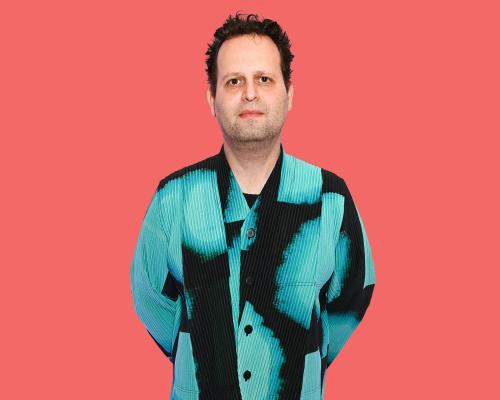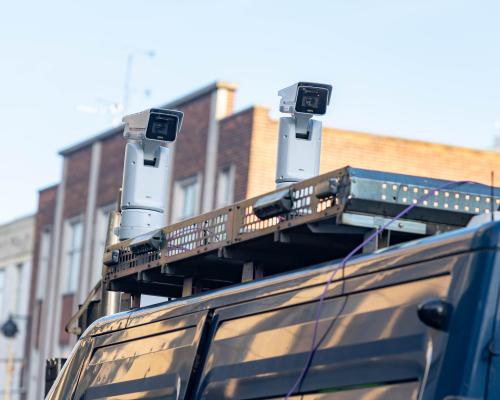
Richard Lloyd Parry, a longtime foreign correspondent whose experiences of war and regime change are recorded in his remarkable 2005 memoir In the Time of Madness, can be said to know whereof he speaks. Many of that book’s issues, including the psychic damage he incurred from events he witnessed in Indonesia, East Timor and Afghanistan in the 1990s and early 2000s, are reinflected in this, his first novel.
Kit and Lara live in a remote village in the deep rainforest. She works for a small, undependably financed NGO. He’s a stay-at-home husband, living for their baby daughter Helen. While Lara presents as impulsive yet practical and barely able to contain her own energy, Kit is dreamy, internalised, exhibiting a calmness that falls easily into dissociation. “This is your life,” she shouts at him shortly before they leave the UK, “a day of your life, and it requires your presence.” He’s struggling with the local language. His wife has neglected to tell him that he’s speaking it in the female register, which is why the villagers are so amused by him. Beneath the trees, the light is “filtered to a soupy dimness”. The villagers claim to be able to tell a child’s fortune from its teeth. The baby, kept in a heavily air-conditioned pod in the space beneath their stilted house, has a rash. Her future, it seems, will feature a long journey: a prediction, Kit observes politely, that he recognises from fortune tellers in his own country.
Though there are outright tensions between husband and wife, and a sense that neither of them is entirely connected with their situation, their life maintains a fractious stability until the arrival of English journalist Court Hardy. Hardy brings them up to date on the political context of their idyll, and warns them that they’re now living in the middle of a war. Lara vanishes. After an attack on the village, Kit and his daughter are ejected into the rainforest, along with a villager called Obson, a handful of the village children, and the novel’s MacGuffin – the memory card from Hardy’s camera, which in the right hands will reveal direct superpower interference in the conflict. To say much more about the plot would be to spoil it.
We are left to guess where these events occur. Lloyd Parry provides broad clues, but anyway it’s in some sense less a nation than a fabular Everywhere, with the local language known only as “the Tongue”, the country always referred to as “the Country”. The Country has been invaded by “the Neighbour”. The nation financing the war is “the Superpower” (or, as Lara formulates it, “the Confederated States of Uncle Fuckface”). Meanwhile, where Kit and Lara are an easily recognisable contemporary couple, Hardy – stout, middle-aged and blustering, his dialogue cluttered with exclamations such as “Fuckaroo” – strikes the reader as the comedy war correspondent of a previous generation. The cumulative effect is sometimes of a novel that can’t quite decide whether to be closely observant or distanced to abstraction; realistic or rawly satirical. The reader, unsure how or in what direction to suspend disbelief, looks around furtively for authorial support.
After this uneasy beginning, In the Green Heart settles to its real task. The forest quickly reveals itself as a central character. Despite his familiarity with its outskirts, Kit is “unprepared for the experience of being enclosed” by it. The air feels “thick and unstirring”. “Time itself,” he muses, was “muffled and distorted”. Obson and the good-natured children pluck “dark festoons” of leeches from each other’s bodies. Kit can’t keep up with them. He feels like “a man swimming in the shallows, who suddenly finds himself above a trench of ocean miles deep”. He’s brought along a compass, but magnetic ores in the surrounding rock render it useless. “It’s OK, Mr Kristian,” Obson reassures him, “I know a way.” But soon enough Obson seems lost, too. As agents of the Superpower close in, intent on retrieving the memory card, the forest becomes the centre of Kit’s struggle against his own personality; only Helen’s few remaining plastic-packaged nappies seem more symbolic. “Crisp as wafers, the opposite of the forest with its wet and profusion, its endless ramifying life”, they console him for his lost entitlement.
“The Green Heart” is a nicely ambiguous phrase, suggesting the heart of a forest, certainly; but equally a human heart under-tested by experience. Kit is lost and his core is green, too. All that connects him to his own experience is the relationship of care with his daughter, presented without distance and in constant wonder. We feel it even more powerfully than we feel his glassy, self-protective dissociation, or his furtive admiration for the forest dwellers who keep him and his daughter alive if not entirely “safe”. Helen is an “immense gamble with his own happiness”. His love for her is “helpless, without walls or will”. By the end of the nightmare – and it is a nightmare, determinedly evoked – the war and its politics, particularly in the interplay between global and national, have supplanted both meanings of the title.
In a tour-de-force final dialogue between Kit and the recently deposed president of the Country, Lloyd Parry explores the foetid jungle of relationships between local power and superpower. In the Green Heart is a strange tale: a little awkward, intensely political, designed to lay bare the fictions of a contemporary colonialism yet inseparable from the closeup portrait of a man attempting to both shelter in and break out of an internal psychic trap. In short, very contemporary.
• In the Green Heart by Richard Lloyd Parry is published by Jonathan Cape (£18.99). To support the Guardian order your copy at guardianbookshop.com. Delivery charges may apply.





